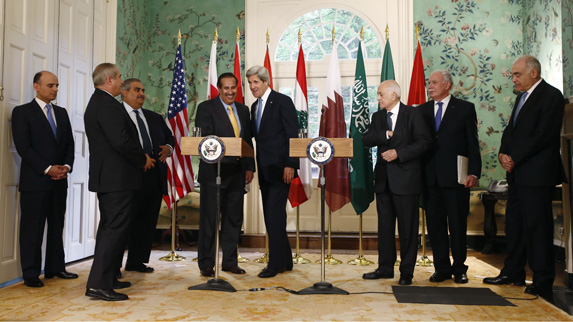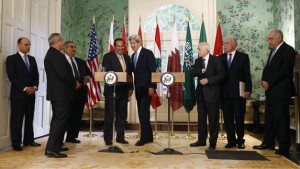Jordan Times
Opinion
Ahmad Y. Majdoubeh
There is a dire need now for an Arab peace initiative. Not another one for tackling the Israeli-Arab conflict, for already there is one, but an initiative to address the inter-Arab conflicts.
Regarding the former, the Arabs have already presented their vision of peace in Palestine. It was the initiative launched by Saudi Arabia in 2002 and backed by the Arab League twice, in 2002 and 2007.
If nothing has happened on that front so far, it is because of the Israeli government’s disinterest in peace.
The initiative, however, is still on the table, and there has been some recent mentioning of an Israeli interest in it, but nothing concrete so far.
What needs to come to light now is an Arab initiative to address the inter-Arab conflicts, which have escalated since the spring of 2011.
Once upon a time, we used to lament the lack of coordination and the presence of some tensions and rivalries among Arab countries.
At this point in time, however, there is in effect a state of war among some Arab states, not directly but through proxies within conflict-struck areas, in which other players from the region and beyond play a pivotal role as well.
War is happening in Syria, Yemen, Libya and to a lesser extent Iraq.
It started through rival elements and forces within individual states, triggered by the so-called Arab Spring, but soon those elements and forces started aligning themselves with both Arab and foreign states, and the conflicts spiralled.
There are no winners among those involved, but the losers, in addition to the beleaguered populations, are the warring parties in individual Arab countries and the Arab countries that abet them and fuel the conflict.
Even the security and economy of Arab countries that are not directly involved are affected.
The only way out is for the influential Arab countries to launch a process of reconciliation and peace, an overall Arab peace initiative that prioritizes resolution of conflicts among all warring factions.
The Kuwaiti sponsorship of peace talks among the warring parties in Yemen is a welcome development. It should be followed by a larger peace umbrella to try to settle conflicts in other Arab countries.
The promotion of these conflicts is not in the interest of Arab countries, and those that think they are immune from the spillover of fights are mistaken.
The region is already plagued by acts of terror and the refugees are burdening, unsettling and destabilising not only countries in the immediate neighbourhood but those in Europe and beyond.
This is why it is crucial for the Arab countries to exert all possible efforts to resolve conflicts without much delay.
Unlike what some may think, many Arab countries are influential in the region and they should not leave peacemaking to Europeans, Americans or other powers from outside the region that have nothing to lose if the conflicts continue.
They should shoulder reconciliation and peacemaking efforts. They are immediately affected and they are the most qualified to make a difference.








